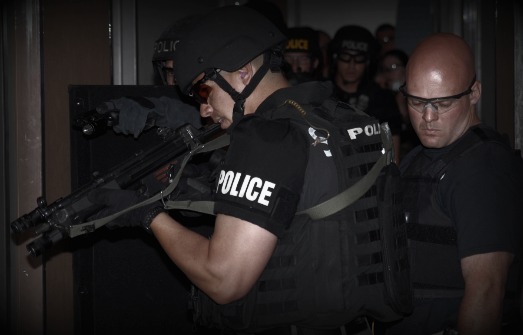The Supreme Court has issued yet another decision shielding police officers from excessive force lawsuits.
Justices issued a per curiam opinion on Monday, in Hughes v. Kisela, siding in favor of a Tuscon, Ariz. police officer who shot a woman four times after responding to a 911 call about erratic behavior.
In issuing their ruing, SCOTUS reversed a Ninth Circuit decision, which said Andrew Kisela should face a civil jury trial brought by the woman he shot, Amy Hughes. Two liberal justices dissented: Sonia Sotomayor and Ruth Bader Ginsburg.
“Such a one-sided approach to qualified immunity transforms the doctrine into an absolute shield for law enforcement officers, gutting the deterrent effect of the Fourth Amendment,” Sotomayor wrote for the pair.
“It tells officers that they can shoot first and think later, and it tells the public that palpably unreasonable conduct will go unpunished,” she also said.
In its ruling, the majority downplayed the significance of Hughes’ Constitutional rights.
“Here, the Court need not, and does not, decide whether Kisela violated the Fourth Amendment when he used deadly force against Hughes,” they wrote. “For even assuming a Fourth Amendment violation occurred–a proposition that is not at all evident–on these facts Kisela was at least entitled to qualified immunity.”
Because the opinion was per curiam, there wasn’t an individual author assigned to the ruling.
The incident at the heart of the case occurred in May 2010. Kisela was among three officers responding to a 911 call about a woman acting erratically, cutting a tree with a kitchen knife.
When the officers arrived on the scene, they found Hughes holding a knife at her side, standing six feet from another woman; then-roommate Sharon Chadwick (Chadwick later testified she “was not the least bit threatened” by Hughes).
“Faced with these facts, the two other responding officers held their fire, and one testified that he ‘wanted to continue trying verbal command[s] and see if that would work,’” Sotomayor wrote. “But not Kisela. He thought it necessary to use deadly force, and so, without giving a warning that he would open fire, he shot Hughes four times, leaving her seriously injured.”
“If this account of Kisela’s conduct sounds unreasonable, that is because it was,” the Obama-appointee added.
The doctrine of qualified immunity protects government officials from civil liability arising from actions that occur on official duty. In recent years, it has been repeatedly invoked by the Supreme Court to quash litigation brought against police officers accused of using excessive force.
In May 2014, for example, Justices protected officers who shot and killed the driver and passenger in a car, after starting a high-speed pursuit over a broken headlight.
Then, in May 2015, the Supreme Court threw out another case that came from the Ninth Circuit. Justices ruled that two San Francisco police officers could not be sued for emptying five shots into a knife-wielding, mentally-ill woman, in her own room at a private group home at the time of the incident.
And in January 2017, SCOTUS stopped civil litigation against an officer who had arrived on the scene of a stand-off and fired a shotgun into a house without warning, sparking a fatal shoot-out.
“Qualified immunity attaches when an official’s conduct does not violate clearly established statutory or constitutional rights of which a reasonable person would have known,” Justices said on Monday, referring to the latter case.
Sotomayor, however, was left wondering what clearly established statutes were violated by Amy Hughes.
Of the police shooting victim, Sotomayor wrote: “[Hughes] posed no objective threat…had committed no crime, and appeared calm and collected during the police encounter.”









